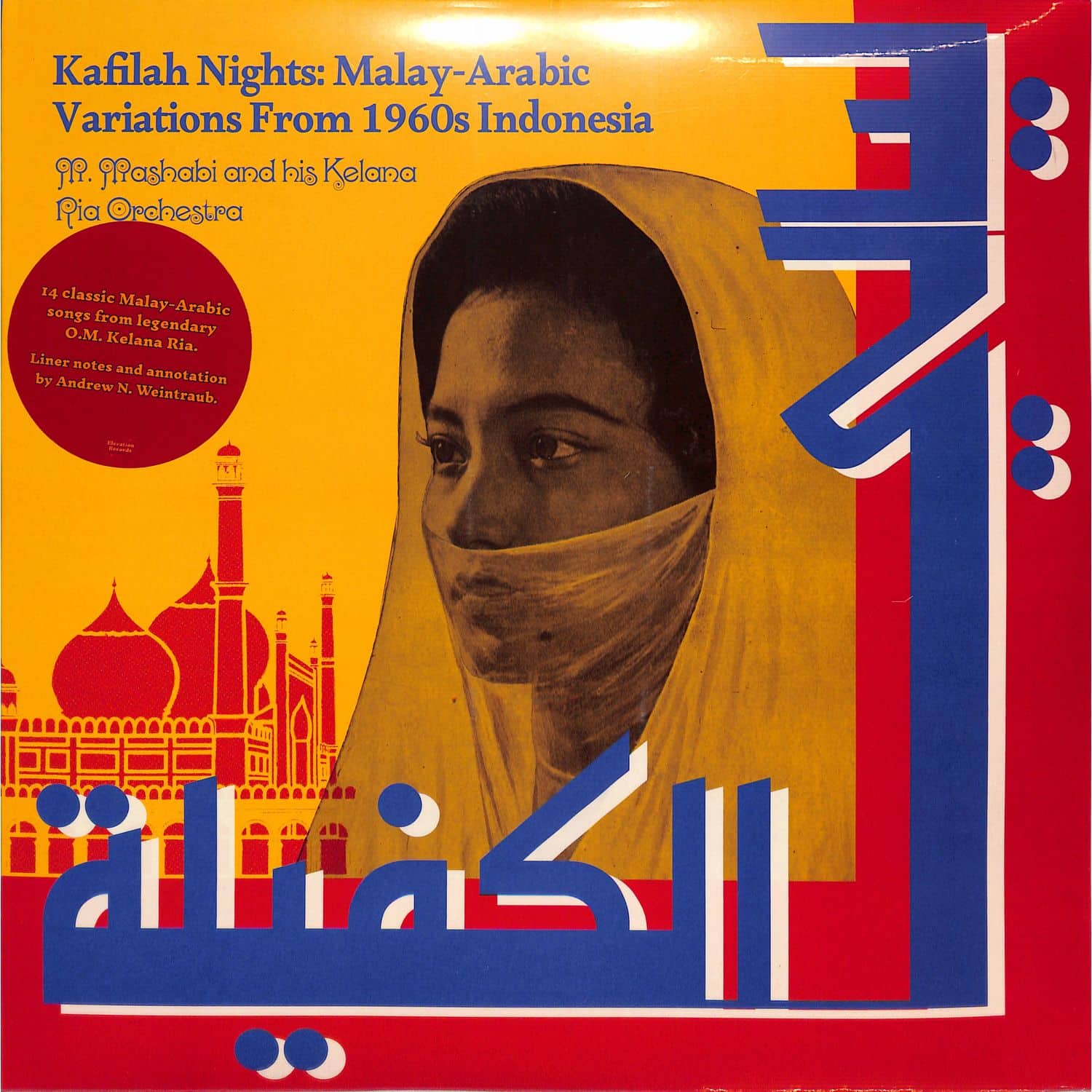KAFILAH NIGHTS: MALAY-ARABIC VARIATIONS FROM 1960S INDONESIA (LP)
12 Inch LP

World Music, recorded between 1961 and 1964
In the early 1960s, two of the best talents in the Indonesian music scene, songwriter and band leader Adi Karso, known for his hits "Papaya Cha-Cha-Cha" and "Balonku" and Gambus musician Munif Bahasuan teamed up to form Orkes Melayu (Malay Orchestra) Kelana Ria.
Between 1961 and 1964, Kelana Ria recorded 48 songs that were spread over four records, Kafilah, Yam El Shamah, Ya Mahmud and Ya Hamidah, which become the primary sources for this compilation.
These four recordings changed the trajectory of Indonesian popular music.
Play "Renungkanlah" (Think About It), included in this compilation, a love song with heavenly melodies and lilting harmonies, to an audience in the Western part of Malaysia or people of Malay ethnicity in Singapore and they would immediately hum along the tune.
"Renungkanlah" has been covered by many countless other musicians in Indonesia and Malaysia and it has become a hit many times over. The song has become a go-to song in karaoke bars in the region, with fans oblivious to who actually wrote this song or who performed it the first time.
Or take the song "Ratapan Anak Tiri" (Lament of a Stepchild), a song that has traversed national boundaries and has become a universal sad song in the Malay world, turning into a shorthand for melancholia that permeates this archipelago of nations.
Another stunner is the melancholia-laden "Kesunyian Jiwa" (Silence of the Soul), an operatic tune so majestic that it could open any black and white Kurosawa film from the late 1940s.
"Kesunyian Jiwa" opens with marching percussion and what could pass for a horn section foregrounding an opera finale before settling into a Latin-inspired composition backing one of the most soulful vocal performances from the 1960s.
The songs and the soulful vocal performance belong to Muhamad Mashabi, who despite the popularity of the songs he created is now largely forgotten, whose history was kept alive only in the neighborhood where he grew up in Central Jakarta.
With only a short musical career and only nine recorded songs from almost 40 compositions, Mashabi fell by the wayside in the early 1970s, especially with the rise of pop and rock from bands like Koes Plus, Panbers and God Bless.
Yet his songs, inspired by Malay traditional songs but performed in the modern studio setting, lay the foundations for what would become the biggest musical genre in the country, dangdut, especially the kind that was popularized by the self-styled king of the genre, Rhoma Irama.
"Mashabi's distinctive vocal style and soul-searching lyrics helped give rise to dangdut, Indonesia's most popular music genre," University of Pittsburgh music professor Andrew N. Weintraub write in the liner notes.